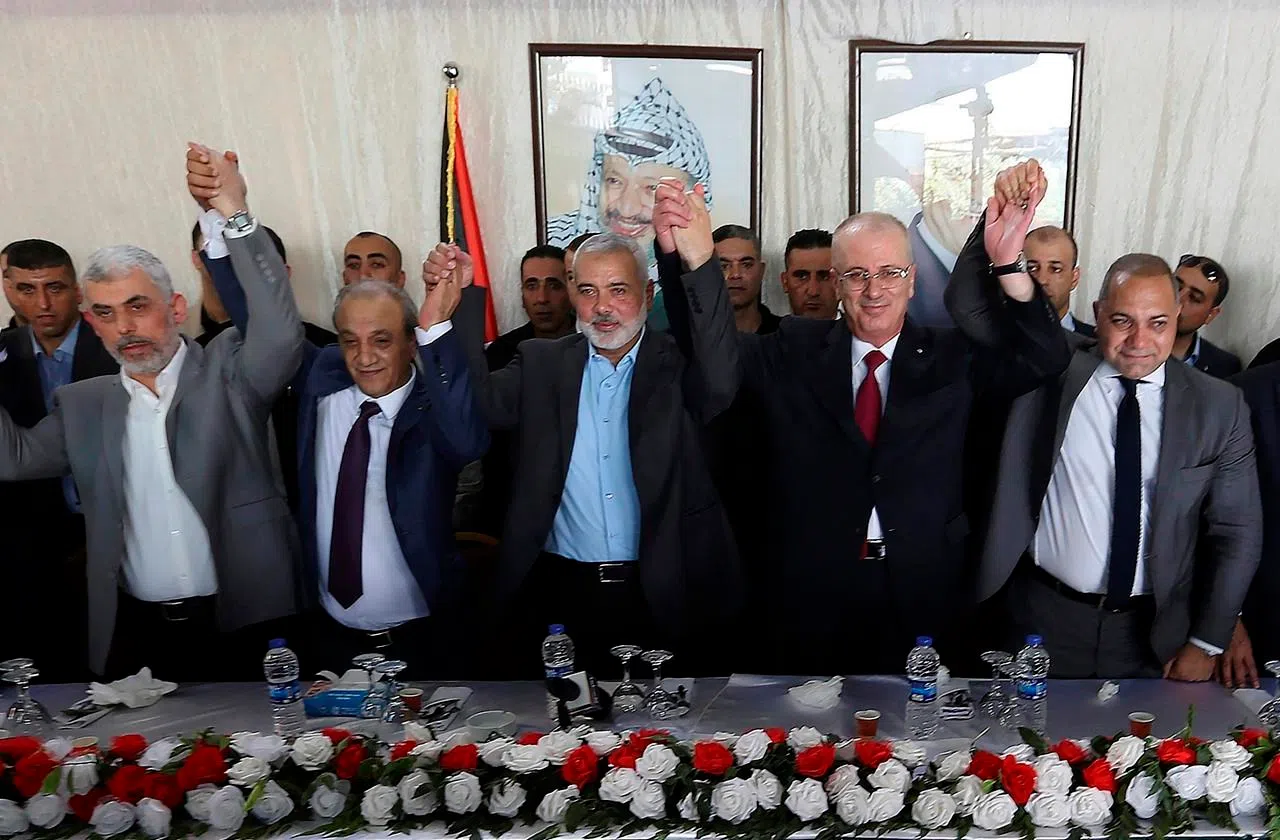
Palestinian rivals reach preliminary deal on governing Gaza
CAIRO — Palestinian rivals Fatah and Hamas reached a preliminary agreement Thursday that could return the Gaza Strip to President Mahmoud Abbas’ control and ease a decade-old Israeli-Egyptian blockade of the coastal territory, but past attempts at unity have foundered on key issues that remain unresolved.
The deal was announced at a news conference in Cairo, where negotiators have been meeting, and Hamas leader Ismail Haniyeh said it was reached under “generous Egyptian auspices,” without elaborating. Egypt has been eager to show progress in unity talks, and both Palestinian factions face pressure to resolve their differences.
The sides have tried, and failed, to reach reconciliation several times before, but even with such skepticism Palestinians celebrated Thursday’s announcement.
“This is the dream and the ambition of every patriotic and honourable Palestinian, to reach unification,” said Ramallah resident Jawad Abu Shaikha.


